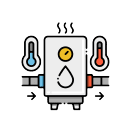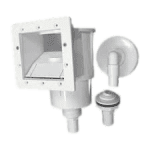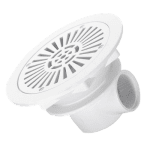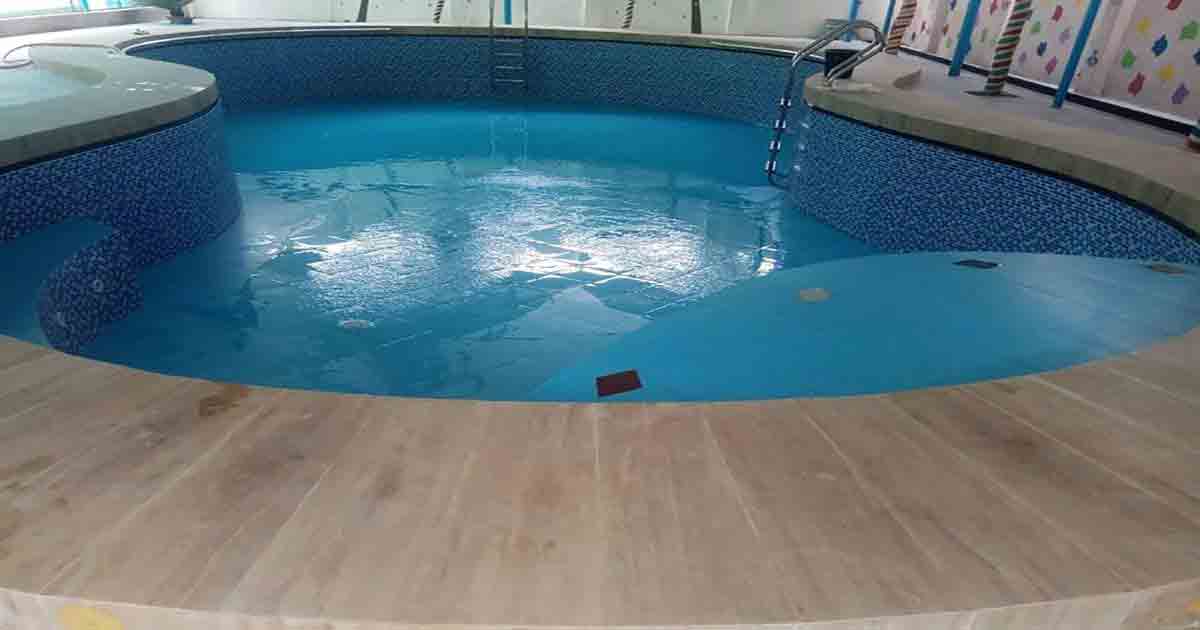Basic swimming pool maintenance
Swimming pool maintenance is crucial for ensuring the longevity, safety, and cleanliness of your pool. Whether you have an above ground pool or an in-ground one, regular maintenance is essential to keep the water clear, safe for swimming, and to extend the life of pool equipment. Here’s a comprehensive guide to basic swimming pool maintenance, covering everything from routine cleaning tasks to water chemistry and equipment upkeep.
1. Daily Skimming and Surface Cleaning (Basic swimming pool maintenance)
One of the most important tasks in swimming pool maintenance is daily skimming and surface cleaning. This involves using a skimmer net attached to a telescopic pole to remove leaves, insects, and other debris that accumulate on the water’s surface. By regularly skimming the pool, you prevent debris from sinking to the bottom, where it can be harder to remove and can affect water clarity.
2. Weekly Brushing of Walls and Tiles (Basic swimming pool maintenance)
To prevent algae buildup and maintain a clean pool surface, it’s essential to brush the walls and tiles weekly. Use a brush suitable for your pool’s surface—whether it’s concrete, vinyl, or fiberglass—to scrub away any algae, dirt, or debris that has adhered to the walls. This also helps in distributing pool chemicals more evenly throughout the water.
3. Vacuuming the Pool (Basic swimming pool maintenance)
Alongside skimming and brushing, vacuuming the pool floor and walls is necessary to remove debris that has settled down. Manual vacuuming involves attaching a vacuum head to a telescopic pole and manually maneuvering it around the pool surface. Alternatively, automatic pool cleaners can handle this task independently, navigating the pool floor to collect dirt and debris.
4. Maintaining Water Chemistry (Basic swimming pool maintenance)
Maintaining proper water chemistry is vital for swimmer comfort and the longevity of pool equipment. Key parameters to monitor and adjust regularly include:
- pH Levels: The acidity or alkalinity of the water, which affects water balance and swimmer comfort.
- Chlorine or Sanitizer Levels: Essential for killing bacteria and algae. Chlorine levels should be maintained within recommended ranges.
- Total Alkalinity: Helps stabilize pH levels and prevent pH fluctuations.
- Calcium Hardness: The level of dissolved calcium in the water, which affects water balance and equipment longevity.
Regularly test these parameters using water testing kits and adjust them as needed using pH adjusters, chlorine tablets, alkalinity increasers, or calcium hardness increasers. Proper water chemistry prevents issues like cloudy water, algae growth, and skin irritation.
5. Cleaning and Maintaining the Filter (Basic swimming pool maintenance)
The pool filter plays a critical role in removing debris and contaminants from the water. There are three main types of pool filters:
- Sand Filters: Filters water through a bed of sand particles, trapping debris.
- Cartridge Filters: Uses pleated polyester cartridges to trap debris.
- Diatomaceous Earth (DE) Filters: Uses a fine powder to filter water through grids coated with DE.
Each type requires regular cleaning or backwashing to maintain optimal filtration efficiency. Backwashing involves reversing the water flow through the filter to flush out trapped debris. Cartridge filters should be cleaned by hosing off the cartridges, while DE filters require periodic replacement of the DE powder.
6. Inspecting and Maintaining Pool Equipment (Basic swimming pool maintenance)
Regular inspection and maintenance of pool equipment ensure everything operates efficiently and extends the lifespan of your pool components. Tasks include:
- Checking Pump and Motor: Ensure the pump is primed and operating correctly. Inspect for leaks, and lubricate o-rings as needed.
- Inspecting Heater (if applicable): Check for proper operation and clean or service annually to maintain efficiency.
- Inspecting Automatic Pool Cleaners: Ensure they are functioning properly and inspect hoses and connections for leaks or wear.
7. Shock Treatment and Algaecide (Basic swimming pool maintenance)
Periodically, your pool may require shock treatment to oxidize organic contaminants and restore water clarity. This involves adding a large dose of chlorine or non-chlorine shock to the pool water, typically after heavy use or during periods of hot weather. Algaecides can also be used preventatively or to treat algae blooms, helping to maintain clean and clear water.
8. Winterizing (for Seasonal Pools)
If you have a seasonal pool that is not used year-round, proper winterization is essential to protect it from freezing temperatures. Steps include:
- Lowering Water Level: Below the skimmer mouth to prevent freezing damage.
- Draining Equipment: Such as pumps, filters, and heaters to prevent water from freezing inside.
- Adding Winterizing Chemicals: To prevent algae growth and protect pool surfaces.
- Covering the Pool: With a durable winter cover to keep out debris and protect against the elements.
9. Professional Maintenance and Repairs (Basic swimming pool maintenance)
While many aspects of pool maintenance can be handled by homeowners, there are times when professional assistance is necessary. This includes complex repairs to equipment, leak detection and repair, and specialized cleaning services such as acid washing to remove stubborn stains or algae buildup. Professionals also have the expertise to diagnose and resolve water chemistry issues that may be challenging for amateurs.
10. Cost of Maintenance
The cost of maintaining a swimming pool varies depending on factors like pool size, location, equipment type, and frequency of use. Budgeting for routine expenses such as chemicals, cleaning supplies, and occasional repairs ensures that your pool remains clean, safe, and enjoyable for years to come.
Basic swimming pool maintenance is vital for keeping your pool clean, safe, and enjoyable. Start by skimming debris from the surface daily and vacuuming the pool weekly to remove dirt and algae. Regularly test the water chemistry to ensure proper pH and chlorine levels, ideally between 7.4 and 7.6 pH and 1-3 ppm chlorine. Brush the walls and tiles weekly to prevent buildup. Clean the filter regularly, depending on the type, to maintain water clarity and circulation. By following these basic maintenance steps, pool owners can enjoy a healthy swimming environment and prolong the life of their pool.
In conclusion, regular and diligent maintenance is key to enjoying a clean and safe swimming pool. By following these basic maintenance practices—skimming, brushing, vacuuming, maintaining water chemistry, cleaning filters, inspecting equipment, and occasional shock treatment—you can ensure your pool remains a source of enjoyment and relaxation for you and your family. Proper maintenance not only enhances the longevity of your pool but also minimizes the need for costly repairs and ensures a pleasant swimming experience throughout the swimming season.
Owning a swimming pool offers countless benefits, from relaxation to exercise, but it also comes with the responsibility of regular maintenance. To keep your pool clean, safe, and in top working condition, basic swimming pool maintenance must be performed on a regular basis. Proper maintenance prevents water issues, saves money on repairs, and prolongs the life of your pool and its equipment. In this article, we’ll cover the key tasks and tips for maintaining a swimming pool, ensuring that it stays inviting and functional for years to come.
1. Regular Cleaning of the Pool
The first and most important step in basic pool maintenance is keeping the pool clean. Debris such as leaves, insects, and dirt can quickly accumulate on the surface and the pool floor, creating a breeding ground for bacteria and algae. Regular cleaning helps maintain water clarity and prevents damage to the pool’s filtration system.
- Skimming: Use a pool skimmer to remove floating debris from the surface of the water. Skimming should be done daily or at least a few times a week, especially if your pool is outdoors where debris can easily fall in from trees or other sources.
- Brushing: The walls and floor of the pool should be brushed regularly to remove dirt, grime, and algae buildup. The frequency of brushing depends on pool usage, but it should be done at least once a week to keep the surfaces clean.
- Vacuuming: Dirt and debris that sink to the bottom of the pool need to be removed with a pool vacuum. You can use a manual vacuum or an automatic pool cleaner. Vacuuming should be done weekly or as needed to maintain a clean pool floor.
2. Monitor and Balance Pool Water Chemistry
Keeping your pool water chemically balanced is essential for maintaining its clarity and safety. Proper water chemistry ensures that the pool is free from harmful bacteria and algae, and that the water doesn’t damage the pool’s surfaces or equipment. Regular testing and adjustment of the pool’s chemical levels are part of routine pool maintenance.
- pH Levels: The pH level of pool water should be kept between 7.2 and 7.6. Water that is too acidic (low pH) can irritate the skin, eyes, and pool surfaces. Water with a high pH can cause scaling, cloudy water, and inefficient chlorine performance. pH adjusters such as sodium carbonate (to raise pH) or muriatic acid (to lower pH) can be used to maintain balanced water.
- Chlorine Levels: Chlorine is the most common sanitizer used to disinfect pool water. The ideal range for free chlorine is between 1.0 and 3.0 ppm (parts per million). Chlorine kills bacteria, viruses, and algae, helping to keep the water clean and safe. You can add chlorine in various forms, such as tablets, liquid, or granular, depending on your preference.
- Alkalinity and Calcium Hardness: Total alkalinity helps stabilize the pH levels in your pool. The recommended range for alkalinity is between 80-120 ppm. Calcium hardness should be maintained between 200-400 ppm to prevent scaling or corrosion in your pool’s plumbing and equipment.
Testing the water regularly is the best way to ensure that the chemical levels are within the proper range. You can use test strips, liquid testing kits, or digital testers. It’s generally recommended to test the water at least once a week, especially during peak pool usage.
3. Check and Maintain Pool Equipment
The pool’s filtration system and equipment are crucial to keeping the water clean and circulating properly. Regular inspection and maintenance of the equipment ensure that the pool operates smoothly, reducing the risk of breakdowns and costly repairs.
- Filters: Pool filters (sand, cartridge, or diatomaceous earth) help trap debris and particles that the skimmer may miss. Regular cleaning and maintenance of the filter are necessary to keep it working efficiently. For example, a sand filter should be backwashed regularly, while cartridge filters should be cleaned with a hose. DE filters require recharging with diatomaceous earth after cleaning.
- Pumps: Pool pumps circulate water through the filtration system. Make sure the pump is running correctly by checking for any unusual noises or leaks. Regularly inspect the pump basket for debris and clean it as needed.
- Heater: If you have a pool heater, it should be checked regularly to ensure it’s working efficiently. Clean the heater’s filters, check for leaks, and inspect the unit for wear and tear. Pool heaters often require professional servicing at least once a year.
- Automatic Cleaners: If you use an automatic pool cleaner (robotic or suction-based), make sure to empty the debris bags or baskets regularly and check for any blockages in the hoses. Robotic cleaners should be stored properly when not in use to extend their lifespan.
4. Maintaining Pool Water Level
The water level of your pool should be monitored regularly. If the water level is too low, it can cause damage to the pump and filtration system, as it may result in the pump sucking in air rather than water. If the water level is too high, it can interfere with the skimmer’s ability to remove debris.
- Water Level: The ideal water level should be halfway up the skimmer opening. If the water level is too low, simply add water using a hose. If it’s too high, use a submersible pump to remove excess water.
5. Cleaning Pool Tiles and Waterline
The waterline of your pool is particularly prone to buildup from oils, dirt, and other debris that can create a grimy layer along the edge. Regular cleaning of the waterline tiles helps keep the pool looking pristine and prevents stains.
- Tile Cleaning: Use a tile brush or a non-abrasive sponge to clean the tiles along the waterline. You can use a pool tile cleaner or a mixture of vinegar and water to remove stubborn stains. Regularly cleaning the tiles prevents the accumulation of mineral deposits, which can be difficult to remove if left untreated.
6. Pool Cover Care
When your pool is not in use, covering it with a pool cover helps keep debris out of the water and reduces the need for cleaning. Pool covers also help to keep the pool warmer and reduce chemical usage by minimizing water evaporation.
- Cover Maintenance: Clean your pool cover regularly to remove dirt, leaves, and other debris. If the cover is damaged, it should be repaired or replaced to ensure its effectiveness.
7. Seasonal Pool Maintenance
In climates where pools are used only during certain seasons, preparing your pool for closing at the end of the season is important. Properly winterizing your pool helps prevent damage from freezing temperatures and ensures the pool is ready to use when the warm weather returns.
- Winterizing: For outdoor pools that aren’t heated, lower the water level to prevent freezing, remove all pool accessories, and cover the pool with a secure cover. Add winterizing chemicals to prevent algae and other contaminants from affecting the pool water.
- Opening: When you reopen the pool for the season, remove the cover, check the water chemistry, clean the pool, and inspect the equipment. You may need to shock the water and reassemble the filtration system.


















